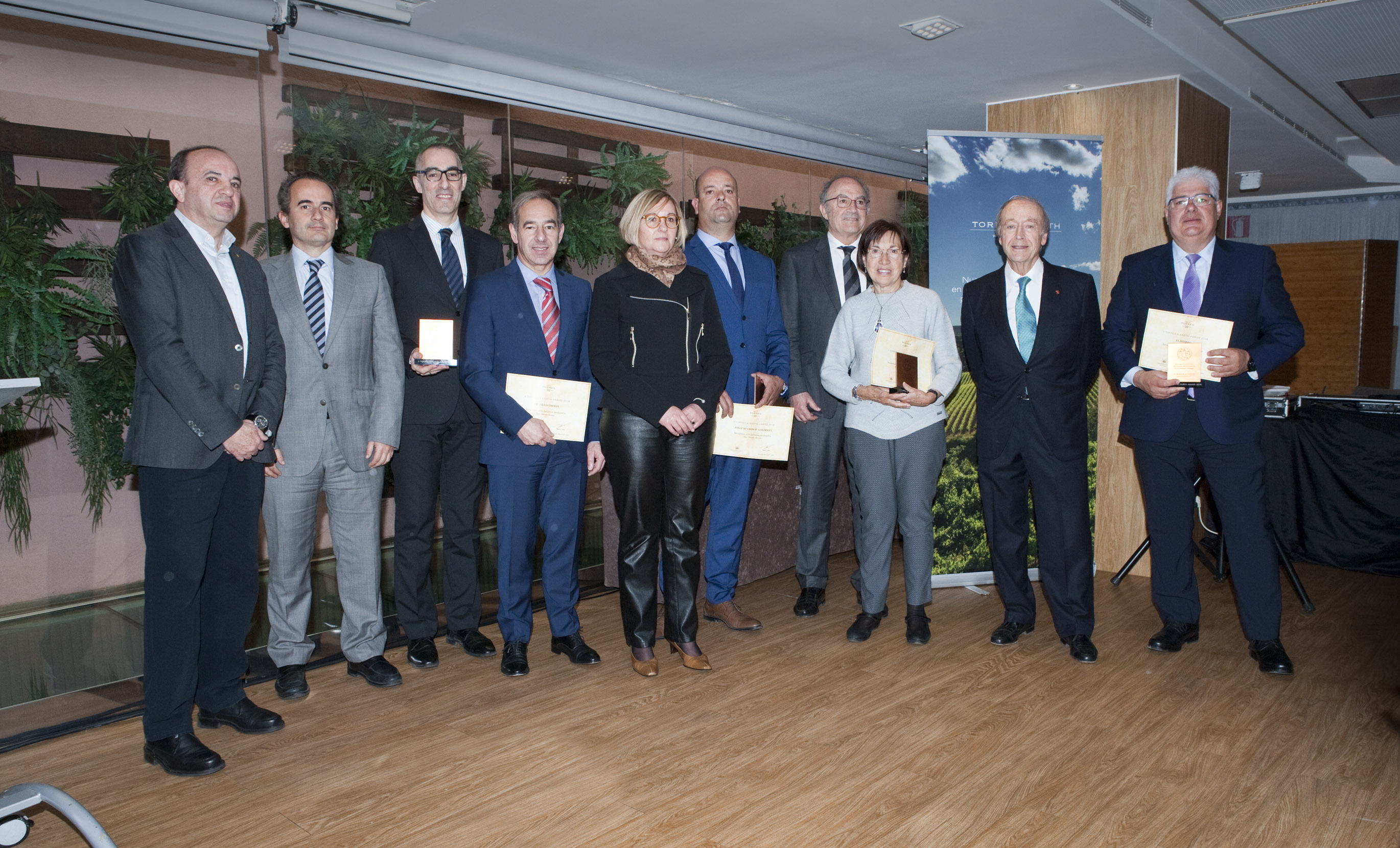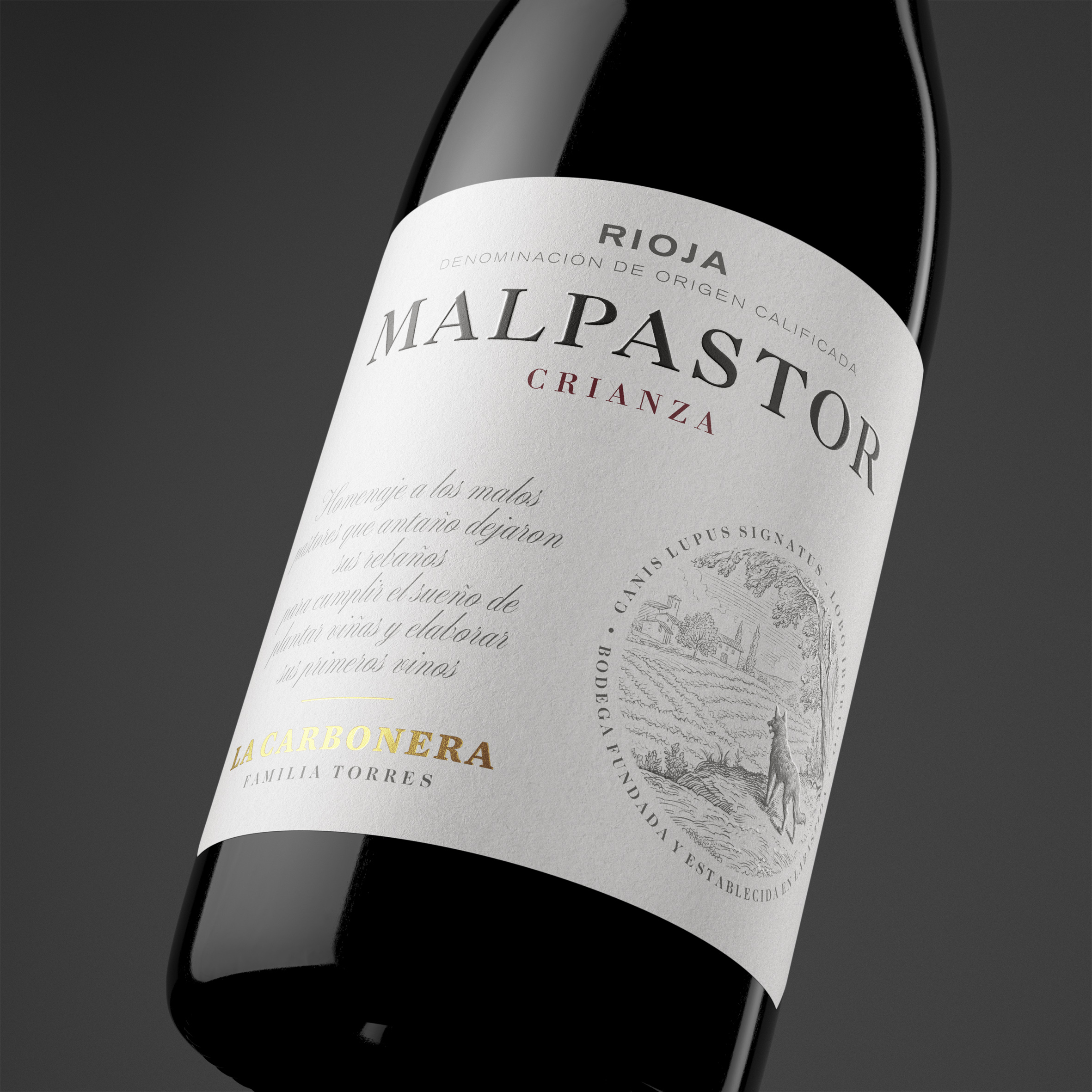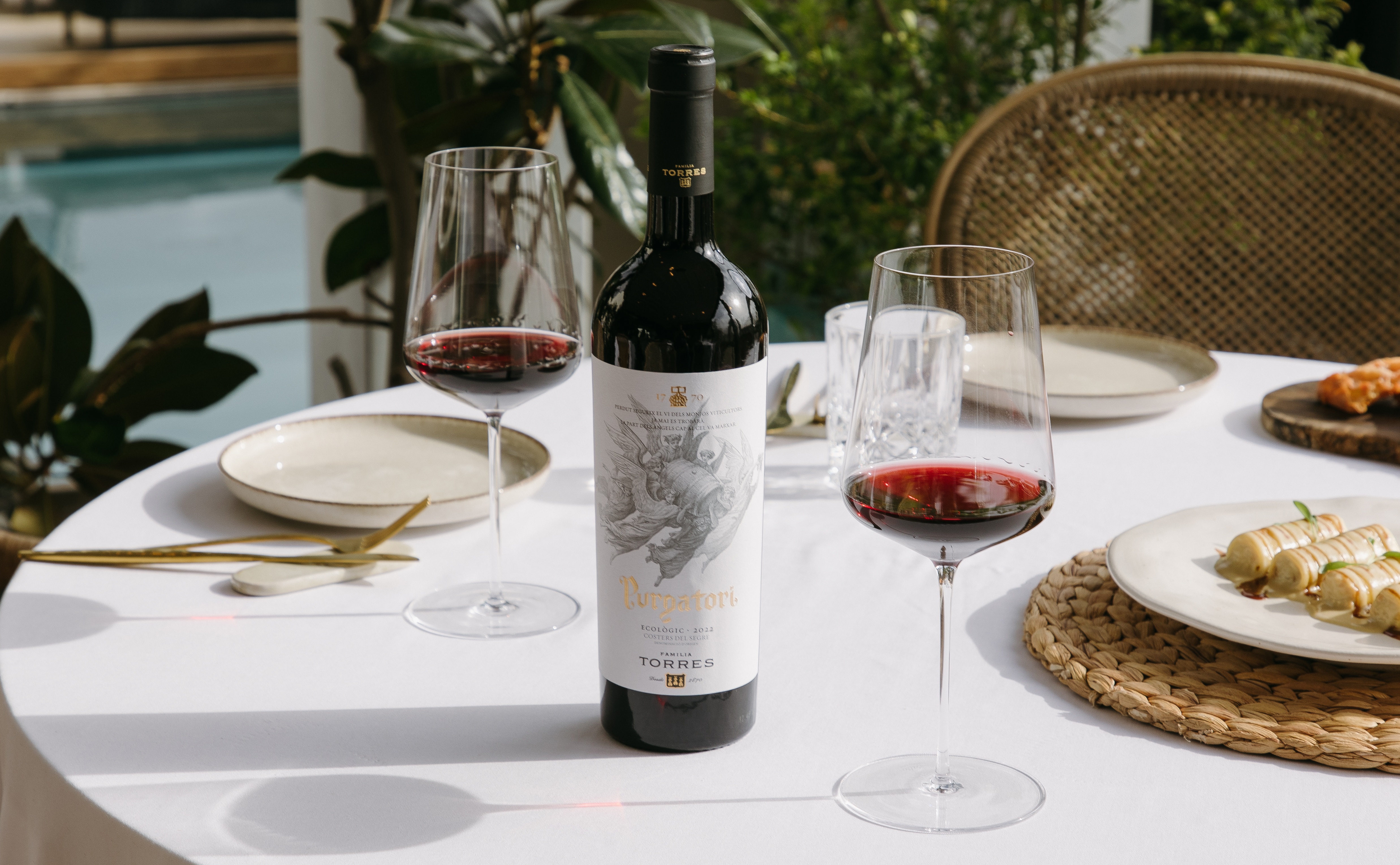At the 2nd Torres & Earth Awards, presented by Miguel A. Torres at a recent ceremony in Barcelona, Familia Torres recognized the environmental commitment of companies, individuals and territories in facing climate change. In addition to honoring the carbon-emission-reduction efforts of three suppliers, the Penedès winery added two new categories this year for raising awareness of global warming and for the use of renewable energy, respectively.
The Canary island of El Hierro, represented by vice president of the regional council Juan Pedro Sánchez, was awarded for its extensive use of natural resources to produce clean, renewable energy and for striving toward energy self-sufficiency with the combined wind and hydropower plant Gorona del Viento. The plant has been operating since mid-2015 and is the cornerstone of the Sustainable Development Plan of the smallest of the Canary Islands. After managing to run entirely on its own renewable energy for 18 days between January and February of this year, thus setting a new world record, El Hierro proved that its sustainability policies—built on renewable energy self-sufficiency, eco-efficient transport, and sustainable fishing and farming—are viable. Miguel A. Torres described the initiative as “an inspiring example for companies and territories that see renewables as the energy of the future.”
The Torres & Earth Award for raising climate change awareness went to Eulàlia Solé, a sociologist and writer, for her articles in the La Vanguardia newspaper denouncing the Spanish government's efforts to block renewable energy and warning of the risks this poses to citizens and society overall. Torres has also criticized this situation on numerous occasions with regard to a photovoltaic (PV) self-consumption system at its winery in Pacs del Penedès, which is still waiting for its grid connection permits after filing the necessary paperwork a year and a half ago.
With regard to suppliers, Familia Torres has recognized three companies in its supply chain that have achieved the greatest reduction in their carbon emissions, thus contributing the most to helping the winery minimize its carbon footprint, which accounts for the full scope of emissions, from vineyard to final transport.
Among the suppliers honored at the 2nd Torres & Earth Awards were Penedès winegrower Josep Maria Grimau Galimany, who has improved the efficiency of his vineyard treatments and management, as well as optimizing cultivation tasks and grape transport. Glass manufacturer Verallia Iberia received an award for producing more sustainable bottles and improving its manufacturing efficiency. The third recipient was logistics company Nadal Forwarding SLU, whose environmental actions include switching a freight truck to natural gas, adding hybrid and electric vehicles to its fleet, as well as opting for 100% electric forklifts.
Paulo Pinto, general manager of Verallia Iberia, and Jaume Altisent, CEO of Nadal Forwarding SLU, accepted the awards on behalf of their companies and explained the actions they have carried out to mitigate the effects of global warming.
Goal for 2020: reduce carbon emissions per bottle by 30%
During the awards ceremony hosted by environmental communicator and writer José Luis Gallego, Miguel A. Torres stated that “these awards came about as a way of thanking the suppliers that have done the most to reduce their carbon footprint, because their efforts are essential to achieving our goal of reducing carbon emissions per bottle by 30% between 2008 and 2020. Thanks to them, and to the wine industry’s greater awareness of how climate change threatens winegrowing, we are now very close to meeting our goal.”
Familia Torres's 2017 carbon emissions inventory showed a reduction of 25% per bottle compared to 2008 (figure certified by Lloyd's). During the past year, the winery has installed small solar cooling and geothermal units to study the possibility of implementing them across its facilities. In collaboration with companies and universities, the winery has also carried out trials to encourage the development of technologies to capture and reuse CO2 released during fermentation.



